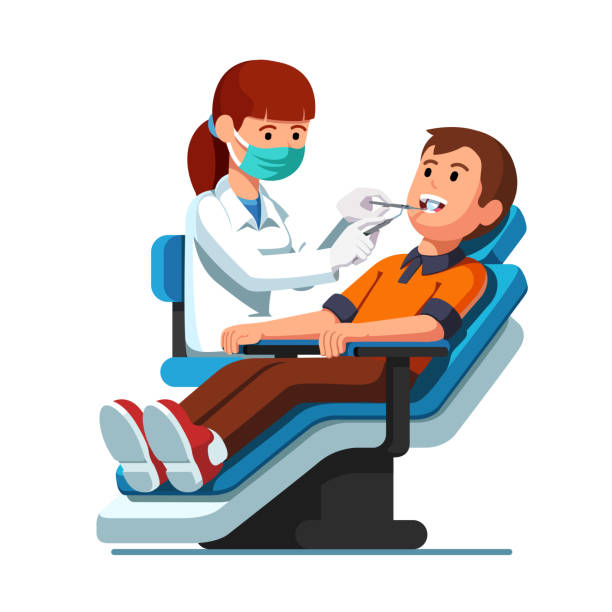Find Out About Frequent Dental Concerns Your Dental Professional Can Solve
Recognizing constant oral problems is critical for keeping ideal oral wellness. Issues such as cavities, periodontal illness, tooth level of sensitivity, foul-smelling breath, and dental cavity prevail yet often forgotten till they come to be serious. Dental practitioners have the experience to detect and treat these conditions, thereby preventing more issues. Routine dental gos to and customized treatment plans can address these troubles properly, making sure a healthier and brighter smile. What certain treatments do dental professionals utilize to fight these concerns, and how can early treatment make a difference? The solution to these concerns offer beneficial insights into safeguarding your dental health and wellness.
Cavities
Dental caries, additionally called cavities, are a prevalent dental health and wellness issue created by the demineralization of tooth enamel because of acid manufacturing from bacterial plaque. This process starts when bacteria in the mouth metabolize sugars and starches from food, creating acids that erode the enamel. Otherwise dealt with promptly, this erosion can pass through deeper into the tooth, impacting the dentin and eventually the pulp, possibly leading to serious discomfort and infection.
The beginning of cavity development frequently existing as white spots on the tooth surface, showing initial demineralization. As the procedure progresses, these areas can become brownish or black sores, symbolizing much more extensive degeneration. Normal dental examinations are critical for early discovery, as dental caries in their inceptive phases can be treated with remineralization methods, such as fluoride treatments.
When a dental caries has developed, corrective treatment is necessary. Dental practitioners generally eliminate the corroded section of the tooth and fill the tooth cavity with products such as composite material, amalgam, or ceramic. In extra severe cases, a crown or root canal treatment may be needed. Safety nets, including good oral hygiene methods and dietary adjustments, play an essential duty in minimizing the risk of cavities.
Gum Tissue Condition
While dental caries stand for a considerable worry for dental health and wellness, one more vital problem that requires focus is gum tissue disease. Recognized as periodontal disease, gum tissue illness is an inflammatory condition affecting the cells surrounding and supporting the teeth. It is largely triggered by the build-up of plaque-- a sticky film of microorganisms that bases on teeth.
Gum condition advances through phases, beginning with gingivitis, identified by inflammation, swelling, and bleeding gum tissues (dentist in eugene oregon). If left untreated, gingivitis can rise to periodontitis, where the inner layer of the gum tissue and bone retreat from the teeth, creating pockets that end up being contaminated. Gradually, the toxins created by the bacteria damage down the bone and connective tissue that hold teeth in area, potentially bring about tooth loss
Very early detection and therapy are essential. Specialist dental cleansings and improved oral health practices, such as cleaning two times everyday and flossing, can take care of gingivitis. For more sophisticated phases, treatments may consist of scaling and root planing, prescription antibiotics, or also surgical interventions.
Routine oral check-ups play an essential role in taking care of and preventing periodontal condition. Dental experts can identify very early indications and recommend appropriate interventions, making sure the upkeep of healthy periodontals and general dental health.
Tooth Sensitivity
Tooth level of sensitivity impacts millions of individuals worldwide, providing a typical yet typically stressful oral problem. This condition occurs when the enamel, the outermost protective layer of the teeth, is compromised, revealing the underlying dentin.
Numerous variables add to enamel disintegration and subsequent tooth sensitivity, including hostile cleaning, acidic foods and beverages, gum recession, and bruxism (teeth grinding) Additionally, oral treatments such as teeth bleaching can temporarily heighten level of sensitivity.
Poor Breath
An additional common dental problem that impacts individuals' everyday lives misbehaves breath, clinically termed halitosis. This problem can be especially stressful, impacting individual communications and self-worth. Halitosis typically stems from poor oral hygiene, which permits food particles to remain in the mouth, promoting bacterial growth. These bacteria produce sulfur compounds, causing undesirable smells.

Dental professionals play an important duty in dealing with and detecting halitosis. They can determine the origin through a detailed examination and supply customized guidance and treatment plans. Referrals might involve improving oral hygiene practices, such as regular brushing and flossing, utilizing anti-bacterial mouth washes, staying moisturized, and attending to any dental problems. Sometimes, a referral to a specialist might be essential to take on underlying illness adding to foul-smelling breath. Effective management of bad breath not only boosts dental wellness yet also dramatically boosts quality of life.
Dental Cavity

Protecting against dental caries involves a combination of good oral health practices and normal oral exams. Cleaning teeth at the very least twice daily with fluoride tooth paste, flossing to eliminate plaque in between teeth, and restricting the consumption of sweet foods and beverages are vital precautionary procedures. Fluoride therapies, dental sealers, and professional cleansings offered by a dental professional can additionally play a considerable function in fortifying enamel and avoiding decay.
When dental caries happens, very early intervention is vital. Dental professionals can get rid of corroded cells and bring back the tooth with fillings made from materials such as composite resin, amalgam, or porcelain. In advanced browse around these guys situations, treatments like crowns, root canals, or removals may be necessary. By addressing tooth degeneration immediately, dentists aid protect dental framework and feature, ensuring lasting oral health.
Final Thought
Dealing with usual dental worries such as dental caries, gum tissue disease, tooth sensitivity, foul-smelling breath, and dental cavity is crucial for preserving ideal oral wellness and total health. Dental professionals have the experience to identify and deal with these issues effectively, making certain tailored take care of each patient. Regular oral check-ups and preventative measures are important in recognizing and managing these issues early, advertising a healthier and extra confident smile over a life time.

Tooth decay, also recognized as dental caries, takes place when the enamel, the outer layer of the tooth, is worn down by acids Check Out Your URL generated by bacteria in the mouth. Brushing teeth at least two times daily with fluoride toothpaste, flossing to get rid of plaque in between teeth, and restricting the consumption of sugary foods and beverages are important preventive actions.Attending to usual oral concerns such as cavities, gum tissue illness, tooth sensitivity, poor breath, and tooth decay is vital for preserving optimum oral wellness and general wellness.